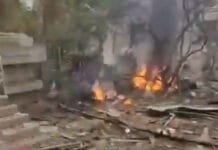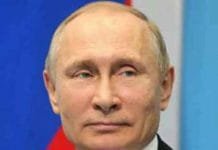Kyiv, November 14, 2025 — Russia launched one of the largest combined drone and missile attacks since the start of the war, striking the Ukrainian capital Kyiv with over 100 projectiles early Friday. The massive aerial assault killed at least four civilians and injured dozens more, Ukrainian officials confirmed.
The overnight barrage destroyed or damaged 15 residential and commercial buildings, triggering fires and widespread power outages across multiple districts. Emergency teams worked through the morning to pull survivors from rubble while repairing critical infrastructure.
Ukrainian President Volodymyr Zelenskyy condemned the attack as “wicked and deliberate,” saying the Kremlin’s timing aimed to break civilian morale ahead of another harsh winter. “Russia continues to wage terror against our cities,” he said, urging Western partners to accelerate air-defense support.
Ukraine’s military reported that air-defense systems intercepted the majority of incoming threats, including dozens of Iranian-made Shahed drones and several cruise missiles. However, officials said the sheer volume overwhelmed parts of the city’s defensive grid.
Friday’s assault marks a sharp escalation in Russia’s winter strategy, which has historically focused on crippling Ukraine’s energy grid and essential services. Residents in parts of Kyiv faced temporary water disruptions and rolling blackouts as engineers worked to stabilize the network.
European leaders reacted swiftly, pledging additional aid and air-defense packages. The EU’s winter assistance plan — expected to be finalized next week — includes generators, fuel reserves, and emergency infrastructure support for Ukrainian cities vulnerable to Russian bombardment.
NATO Secretary-General Jens Stoltenberg said the attack underscores the urgency of strengthening Ukraine’s air-defense capacity. “Russia is trying to freeze Ukraine into submission,” he said, vowing continued support.
This latest strike also comes amid growing diplomatic tensions, as Russia accuses Western nations of fueling the conflict with increased military support for Kyiv. Analysts warn that Moscow is likely to intensify long-range strikes as temperatures drop, aiming to stretch Ukraine’s resources and resilience.
For Kyiv residents, the assault was a grim reminder of the war’s persistence. Yet despite the destruction, crowds gathered in metro stations-turned-shelters vowed to endure. “We will not break,” said one survivor. “We have lived through this before — we will live through it again.”
















